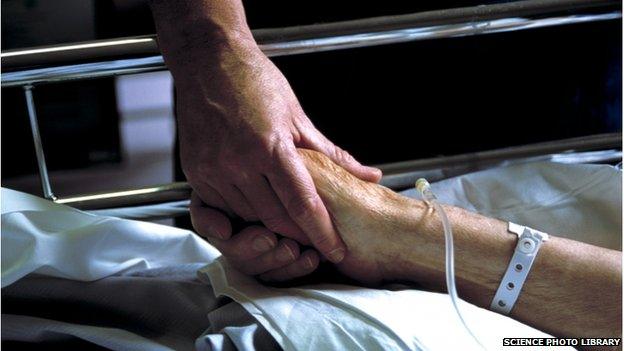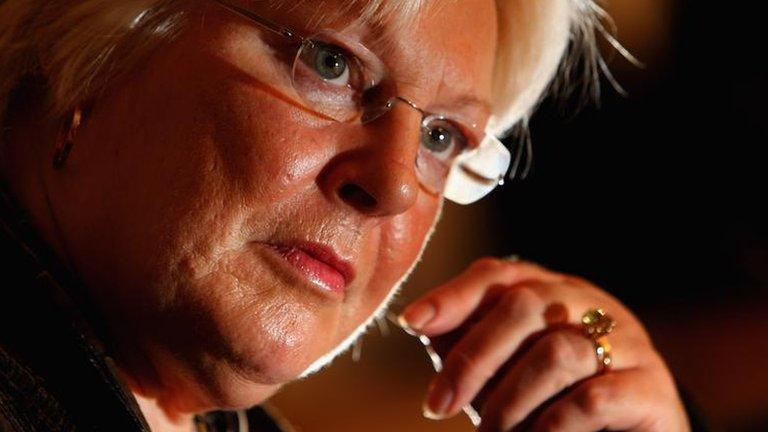Assisted suicide plan 'unethical and uncontrollable'
- Published

The Assisted Suicide Bill is due to be discussed by Holyrood's justice committee next week
Proposals to legalise assisted suicide are "unnecessary, unethical and uncontrollable", according to campaigners opposed to the move.
Care Not Killing (CNK) has launched an online petition calling on MSPs to reject a bill that would allow people to obtain help in ending their life.
The Assisted Suicide Bill is backed by Green MSP Patrick Harvie on behalf of former independent MSP Margo MacDonald.
Ms MacDonald died in April following a long battle with Parkinson's disease.
It is the second attempt to pass such a bill at the Scottish Parliament, the first having been voted down by MSPs in 2010.
Holyrood's justice committee is due to take evidence on the practical application and legal aspects of the bill at its meeting next Tuesday.
CNK, which includes disability and human rights groups, healthcare providers and faith-based bodies, said the current law making assisted suicide illegal is "clear and right".
It said more must be done instead to improve palliative care.
Public safety
Spokesman Dr Gordon Macdonald said: "Any change in the law to allow assisted suicide would place pressure on vulnerable people to end their lives for fear of being a financial, emotional or care burden upon others.
"This would especially affect people who are disabled, elderly, sick or depressed.
"The Scottish Parliament rightly rejected the legalisation of assisted suicide and euthanasia just four years ago out of concern for public safety."
Dr Macdonald claimed current laws were "working well" with only 150 British people having travelled abroad to commit assisted suicide or euthanasia in the past 10 years.
He said: "In every free democratic society, there are limits placed on human freedom in order to protect the common good and vulnerable people.
"The law must not be changed to accommodate the wishes of a small number of desperate and determined people at the expense of the rights of others.
"Once any so-called 'right-to-die' is established, we will see incremental extension with activists applying pressure to expand the categories of people who qualify for it. The right to die will become a duty to die."
Patrick Harvie MSP said there is "substantial public support" for the principle of assisted suicide.
He said: "It's a little sad to see some opponents distort the arguments behind the bill, trying to get people to oppose something which isn't actually being proposed.
"It's a tactic we've seen before, and no doubt we'll see it again.
"But most people are quite capable of seeing through it, and I hope that MSPs will judge this bill on its own merits before reaching their decision."
- Published10 March 2014

- Published14 November 2013
